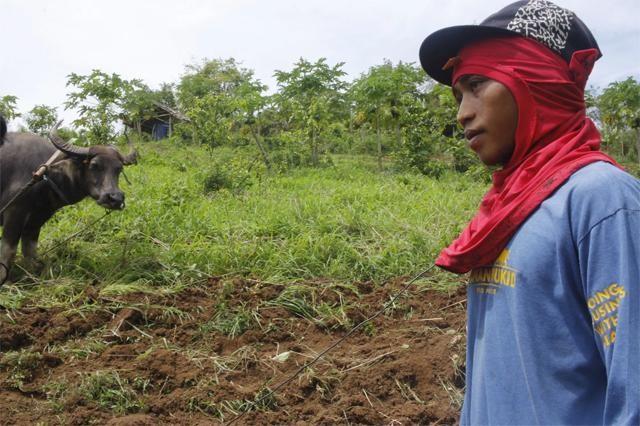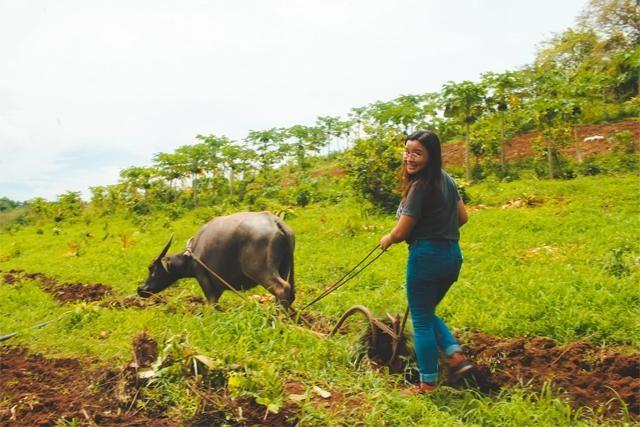Meet Grabao, the carabao-for-hire
Like any farmer, John Michael Campos starts his day even before the sun rises on the horizon. After sipping his favorite coffee, John Michael or Macky as he is fondly called, heads to where he has tied his eight-year-old carabao the night before.
He then goes to a nearby stream to give her a fresh splash before taking the buffalo to the field for the day’s chore.

But Macky is not your typical farmer. For one, he’s just 21. Most farmers usually do not own their first carabao when they’re in their 30s and have families to support.
He now in his sixth year as ward of the friendly farm animal. The sun-tanned young man draped with sweatshirt and extra clothes as sunblock is still single.
For a couple of years now, he’s been known to engage in a unique way of farming and earning a living: plowing other people’s fields using his carabao for a fee.
In the farming community of Bacungan, in Puerto Princesa City, Palawan, Macky’s carabao is the Grabao, a playful portmanteau of carabao and the ride-hailing firm Grab.

Macky is paid P500 for a day's work in the field: P300 for his adroit steering skill and P200 for the carabao. Of course, the entire amount goes to him.
Now, his Grabao is contracted to work on a piece of land on the side of a hill in Bacungan. The land is owned by the Yamang Bukid Farm. The farm has its own carabao but it was a sluggishly old animal, now being used as an attraction to children visiting the agri-tourism destination.
The young man is himself a unique specimen in an industry where the average age is 57. Experts in Philippine agriculture are painting a dim picture of the country’s farming sector, calling it “dying” as most of those into it are in their middle-age. Assuming farmer's life expectancy to be 70, the Philippines might face a critical lack of farmers in the next 15 years, warns the Department of Agriculture’s Agriculture Training Institute (DA-ATI).
While many of his contemporaries see farming as a dirty, backbreaking job, just like what that old folk ditty used to remind us about the rigors of toiling the fields, Macky does not mind.
“Plowing is easy as you learn better ways of doing it. If the field is not too compacted and your carabao is not stubborn, you can do it easily,” Macky says.
But Macky admits farming was not his childhood love. The farmer’s son had wanted to get to college and get a degree, any degree. His unguided and truant adolescent life however, got ahead of him.
“I was lured into a wrong crowd and my college dreams faded away,” Macky says as he rested his carabao, now panting, under the burning Saturday sun. It was close to midday. His gaze swept through uncultivated parts of the hill that was awash with crops: papaya trees almost bent with dangling fruits and rows and rows of ladyfingers (okra), sili (chili), and other vegetables in the undergrowth.
While the indiscretions he committed during his teenage years might have cost him his college dream, Macky says he came to love his being a young farmer as he follows the footsteps of his father, who is now employed with Yamang Bukid Farm.
“I like getting dirty working, so people will have food to eat. I’m proud of being a farmer,” Macky says. —LBG, GMA News




